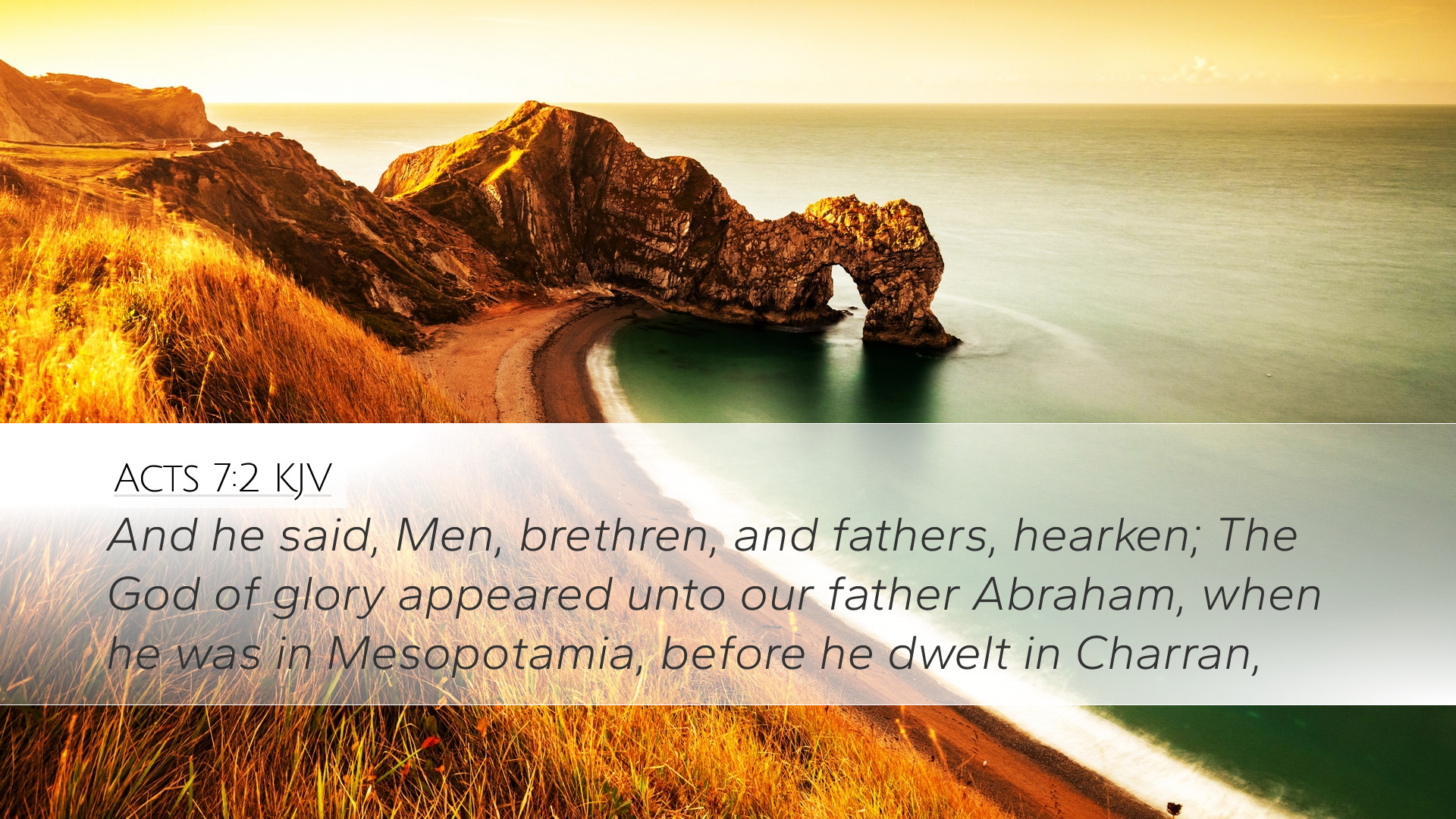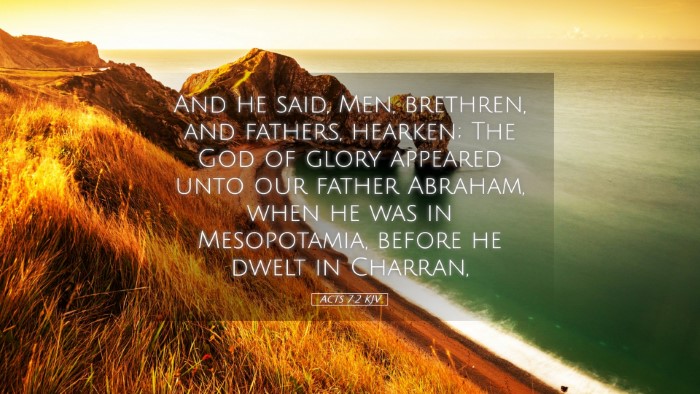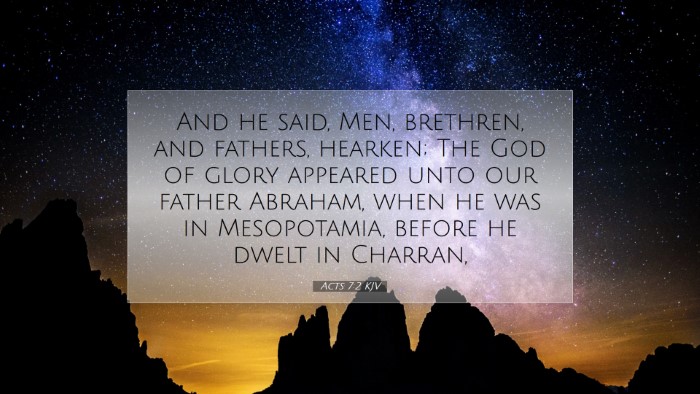Commentary on Acts 7:2
Introduction
Acts 7:2 captures a pivotal moment in the speech of Stephen before the Sanhedrin. This verse serves as the gateway to a reflective recounting of Israel’s history and God’s faithfulness despite their repeated failures. In this commentary, we will synthesize insights from various public domain commentaries to provide a rich exploration of the text.
Text of Acts 7:2
"And he said, Men, brethren, and fathers, hearken; The God of glory appeared unto our father Abraham, when he was in Mesopotamia, before he dwelt in Charran."
Historical Context
The setting of Stephen's speech is crucial for understanding this verse. Stephen faces trial for his teachings about Jesus Christ and the temple. His speech is not just a defense; it is a profound theological exposition conveying God's redemptive history.
Matthew Henry's Analysis
Henry emphasizes the significance of how Stephen addresses his audience: "Men, brethren, and fathers." This greeting is respectful and acknowledges their shared heritage. It illustrates not just Stephen's heart but also his understanding of the audience’s true identity as descendants of Abraham.
Henry goes on to note the introduction of "The God of glory" as a title indicating God's majesty and transcendence. It denotes God's active presence in history. The term "appeared" signifies divine revelation, emphasizing that God takes the initiative in His covenant relationship.
Albert Barnes' Insights
Barnes elaborates on the phrase "the God of glory" by linking it to God's characteristics demonstrated throughout the Old Testament. It indicates not just the display of divine power but an appeal to the audience's acknowledgment of God's ultimate authority and sovereignty.
He also highlights that the mention of "our father Abraham" serves to establish a communal bond and shared faith. By referencing Abraham, Stephen roots his argument in the history of God's dealings with Israel, which was crucial for his audience's understanding.
Adam Clarke's Exegesis
Clarke stresses that Stephen's reference to "Mesopotamia" is significant in tracing the geographical and spiritual journey of Abraham. Mesopotamia, often considered the cradle of civilization, symbolizes the place where God's call began—a foreshadowing of the nation Israel would become.
Clarke notes the importance of chronological context, as Stephen mentions this appearance of God before Abraham settled in Canaan. This element underscores that God’s plans often precede human actions and establishments, drawing attention to divine sovereignty over human history.
Theological Implications
This verse offers profound insights into the nature of God and His relationship with humanity. The mention of "glory" encapsulates God's holiness, majesty, and the transformative power of His presence. It points to the narrative of divine interaction with humanity and sets a foundation for understanding redemptive history.
God's Initiative in History
The verse illustrates that God actively seeks to reveal Himself. His appearance to Abraham exemplifies divine initiative—God calls individuals for His purpose regardless of their circumstances. This underscores the notion that God's redemptive work is not confined to specific locations or actions but is global and eternal.
Covenant and Identity
Stephen’s invocation of Abraham connects to the larger covenant narrative throughout the Bible. For both Jews and Christians, understanding their spiritual lineage is critical. This not only reinforces the concept of divine promise but also affirms the identity of believers as part of God's family.
Conclusion
Acts 7:2 is not merely a historical reference; it stands as a testament to God's glory and the unfolding of His relational covenant with humanity, beginning with Abraham. The verse reverberates with theological richness that is essential for pastors, scholars, and students. The reflections from Matthew Henry, Albert Barnes, and Adam Clarke energize this verse with contextual and spiritual significance, inviting readers to engage deeply with God's unfolding plan through history.
As such, Acts 7:2 serves as both an introduction to Stephen's larger discourse and a lens through which to view the character of God—a God who appears, speaks, and acts throughout history to form a people for His glory.


